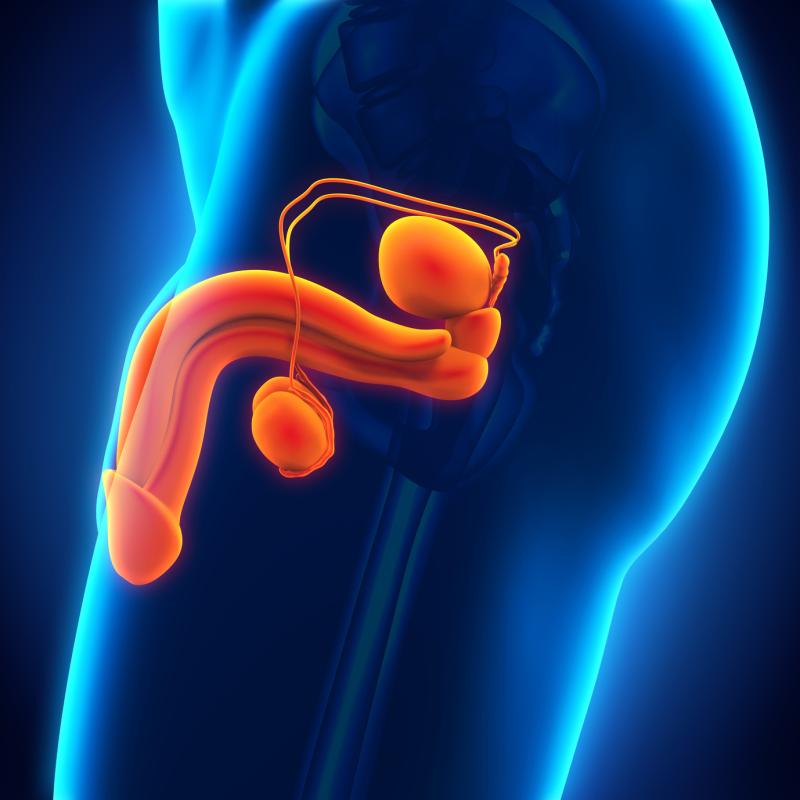Male Infertility Treatment
These are conditions caused by the man when the couple cannot conceive within a year despite regular and unprotected sexual intercourse. Infertility in men can have many causes, so treatment varies depending on the underlying problem. Male infertility treatment, ranging from lifestyle change to surgical intervention and medical treatments.
In what cases is male infertility treated?

Male infertility treatment, çiftlerin çocuk sahibi olma sürecinde karşılaştıkları zorluklara göre yapılır. Erkek faktörüne bağlı kısırlık, çiftlerin yaklaşık %50’sinde etkili bir faktördür. Tedavi ihtiyacı, altta yatan nedenlere göre belirlenir.
Imbalances in hormone levels in men can affect sperm production. Conditions such as testosterone deficiency can reduce sperm count and quality. These types of hormonal problems are tried to be corrected with appropriate drug treatments.
Varicocele is an abnormal enlargement of the veins in the testicles. It may negatively affect sperm production by causing an increase in temperature in the testicles. Varicocele treatment is done by surgical means. It can reduce negative effects on sperm production.
Problems with ejaculation can interfere with sperm transfer. Such problems can be treated with medication or surgery. Genetic disorders such as Klinefelter syndrome can lead to male infertility. Genetic counseling and medical treatment help couples understand treatment options.
Obstructions in channels such as the epididymis or vas deferens may prevent sperm transfer. It is possible to remove these obstructions with microsurgical methods.
Factors such as excessive alcohol use, smoking, drug use, and exposure to environmental toxins contribute to infertility. In these cases, lifestyle changes and behavioral treatments are important. The presence of sperm antibodies can interfere with the function of sperm. Infertility caused by immunological factors may require special treatment methods.
Male infertility treatmentis determined following the medical evaluation and diagnosis process. Treatment aims to increase the couple's chances of having children. It requires an individualized approach to achieve the best possible results.
How to Treat Male Infertility?
Male infertility treatment, varies according to underlying causes. It is administered by a urologist or a reproductive endocrinologist. Treatment options include lifestyle changes, medication, surgery, and assisted reproductive techniques.
- Smoking and excessive alcohol use can negatively affect sperm quality and count.
- Obesity can affect hormone levels and sperm production. Achieving a healthy weight may improve fertility.
- Stress can lead to hormonal imbalances and therefore infertility. Stress management techniques may be recommended.
- Hormonal imbalances can affect sperm production. Medication may be administered for testosterone deficiency or other hormonal problems.
- Infections affecting the reproductive system are treated with appropriate antibiotics.
- Correcting dilated veins improves sperm quality and production.
- If there is a blockage in the sperm-carrying channels, these blockages can be removed with microsurgical methods.
- In cases of azoospermia, surgery is required to obtain sperm from the testicles or epididymis.
- ICSI is used as part of the in vitro fertilization (IVF) process. A sperm cell is injected directly into an egg cell.
- IVF is a process in which fertilization takes place in a laboratory environment and then the embryo is transferred to the woman's uterus.
- In some cases, sperm donation can give couples a chance to have children.
Male infertility treatment, It requires a complex and multifaceted approach. Treatment is individualized based on the couple's specific situation, response to treatment, and preferences. During the treatment process, couples may need emotional and psychological support. That's why consulting services also play an important role. The potential benefits, risks, and costs of each treatment method should be carefully evaluated.
Recovery Process After Male Infertility Treatment

Male infertility treatment The recovery process varies depending on the treatment applied and health conditions. Treatment includes lifestyle changes, surgery and assisted reproductive techniques. Each treatment method has its own healing processes and points that patients should pay attention to.
Mild to moderate pain may be felt following surgical intervention. Doctors may recommend painkillers to control the pain. Patients should avoid strenuous physical activities to support the healing process.
Depending on the type of surgery, full recovery can often take several weeks. Patients should follow their doctor's recommendations for returning to normal activities. Drug treatments may cause some side effects. It is important for patients to follow their doctor's recommendations to manage side effects and increase the effectiveness of medications.
Regular follow-up is required to evaluate hormone levels and sperm quality. When assisted reproductive techniques such as ICSI or IVF are used, the treatment process is emotionally challenging for couples.
During and after treatment, couples may need emotional support. Psychological counseling and support groups can help in this process. The success rates of ART methods depend on many factors. A detailed evaluation should be made with doctors about the results obtained after treatment.
Male infertility treatment The post-mortem recovery process includes physical and psychological healing. It is important for patients to follow doctor's recommendations. During and after the treatment process, patience and a positive attitude can help couples successfully get through this difficult period.






